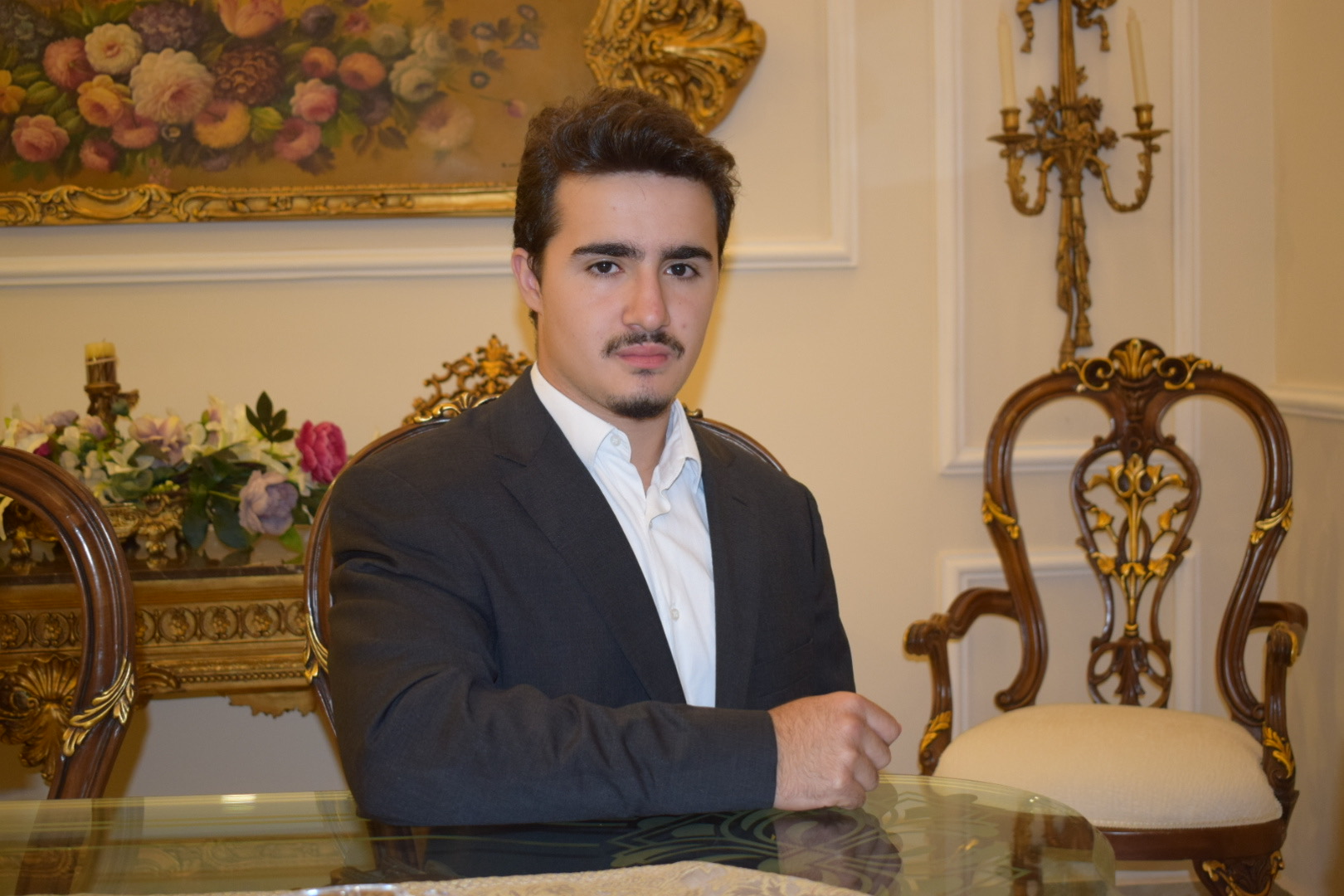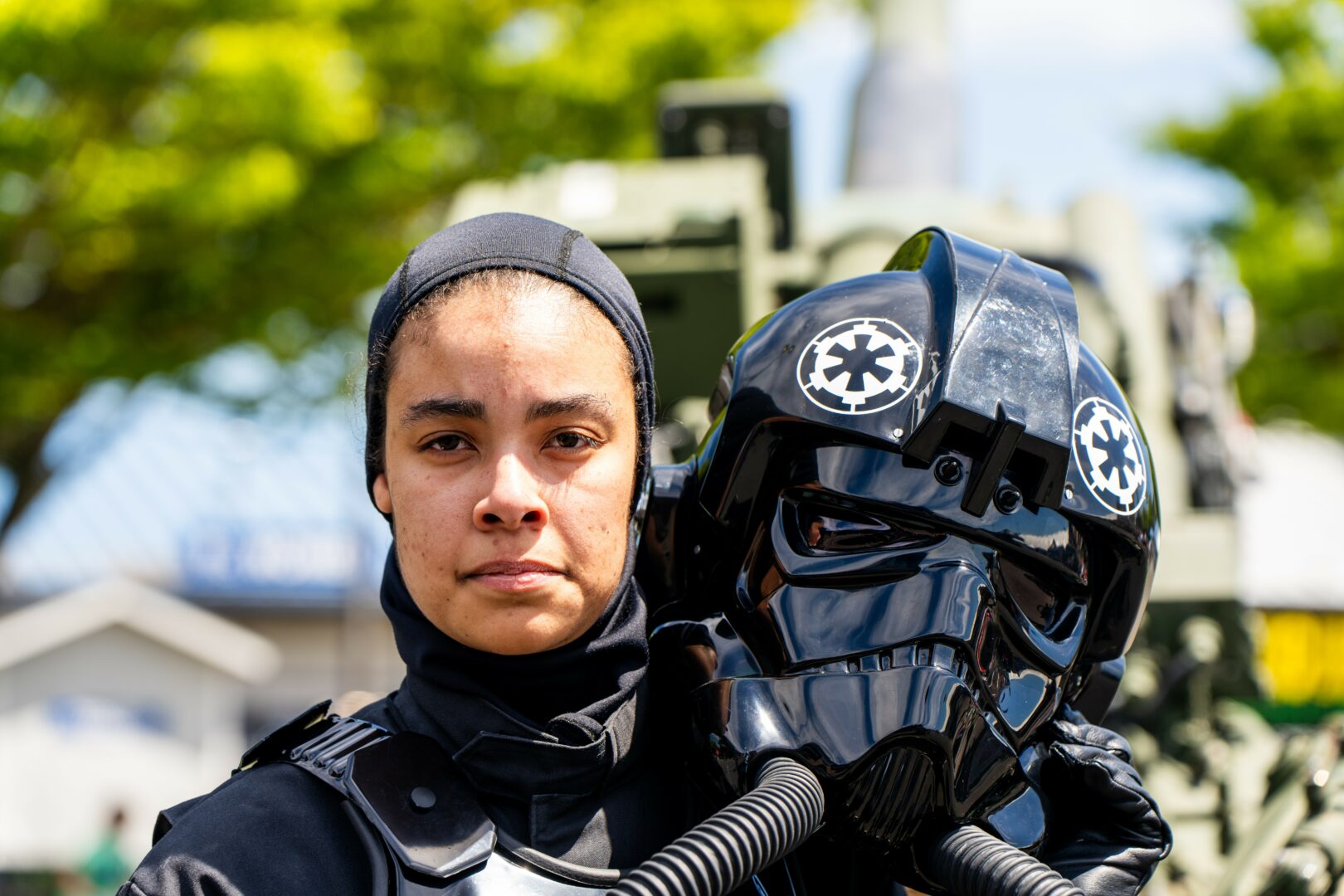We caught up with the brilliant and insightful Cassie LeFevre a few weeks ago and have shared our conversation below.
Hi Cassie, thanks for sharing your insights with our community today. Part of your success, no doubt, is due to your work ethic and so we’d love if you could open up about where you got your work ethic from?
Undoubtedly, I get my work ethic from my mom. I feel fortunate to have (and to have had) her example throughout my life, guiding me from preschool to college and now towards solidifying my professional career.
Not a lot of people comprehend what it means to live in poverty. When fifty bucks is the difference between packing a lunch for your kids tomorrow vs. sending them off hungry. My mom does—and as one of those kids she fought so hard to support, I can personally attest to the sheer strength, dedication, and resilience it takes to will one’s family out of the proverbial basement.
I was around twelve-years-old when we were forced to vacate our house and began to shuffle living in a tent, car, dingy hotel rooms, and various rental homes. During this period, my oldest brother was away at college while my other brother and I attended public school. Despite our circumstances, there were never any questions about dropping out in favor of getting a job and supplementing the single-parent income. My mom wouldn’t entertain them. She was vehement about school being our job. That was our family’s philosophy from day one, and it never changed. Consequently, it signaled to us that school was important. Fulfilling our assignment was important; there was a sense of duty there. If school was our job, then we ought to approach it as such and try to work as hard as our mom did at hers.
“Try” being the operative word, given that matching my mom’s work ethic—especially during that time—may well have been an impossible task. (Sorry, Yoda. There is a try in this case.) My mother was truly tireless and committed: working multiple jobs, soldiering through immense hardship and stress, all while staying positive, cracking jokes, and remaining insistent that her kids’ lives stay as normal as they possibly could. She fought tooth and nail for us so that we could not only survive but so we could thrive. And when you are the product of that kind of sacrifice, I think the least you can do is try not to screw it up too much.
Both of my brothers and I graduated from college. I’m the youngest; I was the last to do it in 2021. We’re all still living in Colorado, and we’ve now transitioned our work ethic from school to professional careers. Thanks to our mom, we know what it looks like to work diligently and live selflessly; to take pride in one’s work regardless of its perception or reward. We also know that working hard doesn’t always guarantee success. Sometimes luck or circumstances will simply turn on you, which means you should never take “normal” for granted. When you are forced to live minimalistically, it’ll quickly set your priorities straight and provide transparent direction.
In short, sometimes I feel like I’ve been given a cheat code. I won’t ever need a reminder of what a good person or a good worker looks like, because I was raised by one.
Appreciate the insights and wisdom. Before we dig deeper and ask you about the skills that matter and more, maybe you can tell our readers about yourself?
I’d primarily identify as a filmmaker, writer, and media manager/marketer. I currently work as Marketing Assistant with the Denver Philharmonic Orchestra and, under my business title, Barn and the Biscuit Entertainment, I produce my own content and offer a variety of services to those in the Denver area (as well as remotely for those outside). These creative services include: film production, videography & photography, editing, motion graphics, digital marketing, and writing (both copy & screen).
Although I have an award-winning film background (counting a degree in Film & Television Production from the University of Colorado-Denver), the epitome of my passion lies in storytelling—a brilliantly non-exclusive form. Labels like “filmmaker”, “writer”, and “marketer” struggle to encapsulate storytelling because stories are everywhere, everpresent. They are us. Our stories inspire the stories we see in art and embody our experiences in totality: from love & grief to enterprise & vocation.
My professional fulfillment comes from discovering, capturing, and amplifying these stories. Whether that be through video, photos, word, or graphics, I love utilizing my creative skills to help connect people and communities. In this way, I may not be a stereotypical filmmaker nor a stereotypical marketer, but I’ve developed a specialty by blending the two. By utilizing both the analytical and creative sides of my brain to plan and deliver consistent, dynamic brand messaging; producing engaging, cinematic visuals; crafting precise & accurate copy; and serving storylines with attentive, passionate authenticity—whether they are fact or fiction.
Starting in 2024, I’m also launching a new “pay what you can” initiative for non-profits. This is a business model that I’ve been working towards adopting for Barn and the Biscuit since my graduation. Formalizing my own approach within the media industry has been (and will continue to be) a learning process, but the hardest part for me has always been striking an appropriate and responsible balance between “making a living” and an earnest desire to give back. My hope is that by moving to a “pay what you can” framework for non-profits, I can allocate more time & effort to these important causes as well as, hopefully, be introduced to even more of the incredible people working behind them for good.
Whether you wish to create a video showcasing the impact of your organization, capture inspiring stories of people you’ve helped, or simply expand your social media content, Barn and the Biscuit would be thrilled to help amplify your non-profit’s message to reach a wider audience.
There is so much advice out there about all the different skills and qualities folks need to develop in order to succeed in today’s highly competitive environment and often it can feel overwhelming. So, if we had to break it down to just the three that matter most, which three skills or qualities would you focus on?
Looking back, I would cite organization, flexibility, and accountability as three skills/qualities to positively impact my journey.
As a creative, organization skills are sometimes overlooked. Perhaps because we tend to tie it to more traditionally stringent jobs/roles. However, organization can also refer to an overall mentality. For me, it’s the way in which I process & analyze information, distill it out into actionable tasks, and define internal deadlines. That’s why organization is a boon regardless of chosen profession. Take the time to understand how your brain clicks, and you’ll know how to develop an efficient system for it. Better yet, fine tune that system so that it can be clearly communicated to your collaborators, and your coworkers/clients will love you because you’ll save them time and effort too.
That said, I think the best kind of collaborator is also flexible and willing to make compromises. Not everyone’s brains are going to work the same way—and that’s okay! It’s great even! Individuality and diversity should be celebrated. Mind you, it can be difficult to remember this when you’re working with someone whose personality and/or process conflicts with your own, but the better we become at adjusting to others’ tendencies & needs, the more of that natural, combative stress we can alleviate from the situation/environment. Then, in turn, our minds will be freed to tackle and mitigate outside factors (a.k.a. problem solving).
In the same vein, consistently holding yourself accountable for your part is another incredible way to set oneself apart. We hear the cliche in sports all the time—that one about pointing thumbs, not fingers? Sure, you could turn your thumb away from your own chest, but that would be awkward. Point is, looking inwards serves us better than looking outwards. At the end of the day, that’s all we can control: our ability to stay composed, independent, and self-motivated regardless of the conditions around us.
I’ll add one other piece of advice for those that may be early on in their journey… Ask questions. Not only to your teachers, parents, and mentors—but also to your peers. Be curious and show that you care. You’d be surprised by the kind of insight you might receive by picking someone’s mind or by simply getting to know them.
What do you do when you feel overwhelmed? Any advice or strategies?
Prioritize, prioritize, prioritize. I’d say “prioritize” again, but that’d be ridiculous. Three is the sweet spot.
Whenever I’m feeling overwhelmed, I always try to take a step back, breathe, and re-evaluate what’s ahead of me. If it’s a giant list of to-do’s? Break it down into levels, determine what’s most pressing, and forge ahead one step at a time. Make a list and check off the items as you go if that satisfies you. Now, if it’s personal stress? Don’t feel guilty about taking time for yourself, but be honest about it. Don’t ignore the issue; dig deep to find its root. Separate yourself if you need it. Get out of your own head. Watch a movie. Exercise. Laugh. Cry. Seek advice.
Most importantly, figure out what truly matters to you, put it first, and let that be your ultimate compass.
Contact Info:
- Website: https://www.barnandthebiscuit.com/
- Linkedin: https://www.linkedin.com/in/fevreish/
- Other: Denver Philharmonic Orchestra: https://denverphilharmonic.org/






Image Credits
Womanhood: The Series photographer – Sofia Shappell




